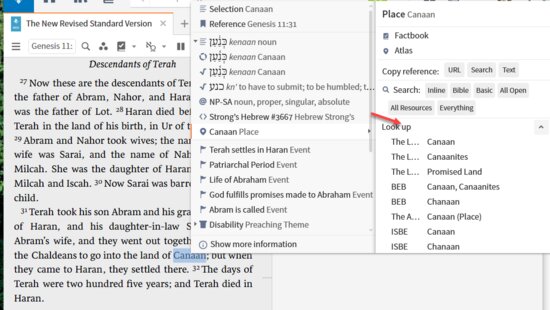To reproduce - although this is not limited to any example - NRSV to Gen 11:31 - select Context Menu - note the Lookup section which has an unusual layout, unlimited number of entries, and omits the actions that follow look up. I am not happy that I've had to report this a second time. It is the sort of error that should be fixed ASAP because it interferes with a basic program function.
